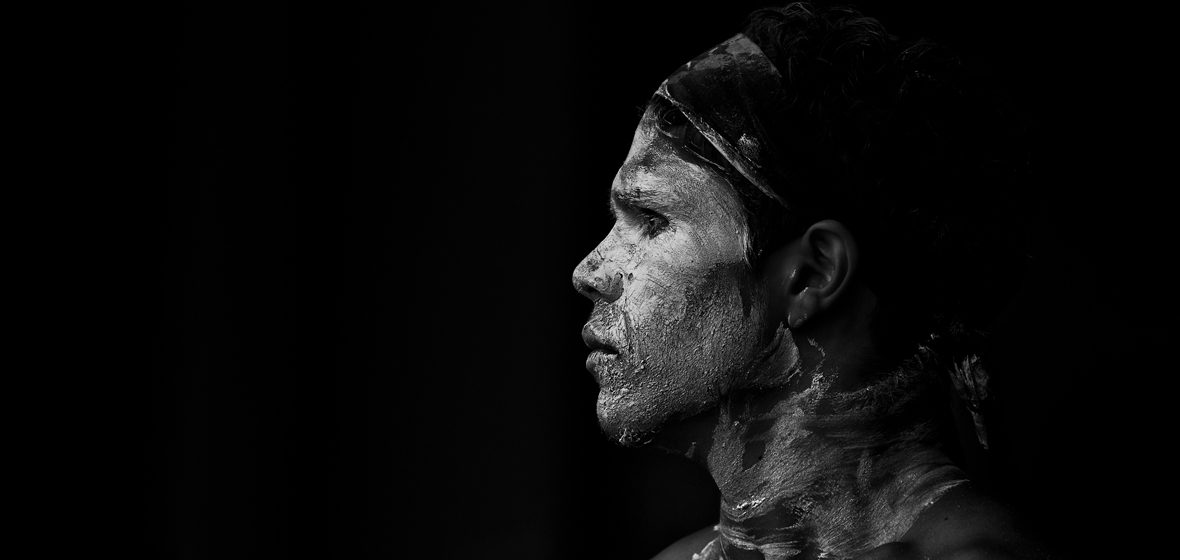As COVID-19 ravages the world, Australia’s Indigenous communities have skilfully managed to keep the virus at bay – and it’s got nothing to do with luck.
Media around the world have covered the extraordinary success of Aboriginal and Torres Strait Islander people, communities and organisations during COVID-19.
As outlets like the BBC and the Washington Post reported, from Alaska to the Amazon, Indigenous communities were devastated by COVID-19, which like all crises exacerbated inequities and injustice that were already at the heart of our systems.
But not here in Australia. As the Washington Post said: “Not only have Indigenous Australians recorded far fewer infections per capita than their global counterparts, they are six times less likely than the wider Australian population to contract the coronavirus, government data shows.”
According to the latest June 2021 figures, the number of COVID-19 cases in Aboriginal and Torres Strait Islander populations remains at 154, and there continue to be no associated deaths nor cases in remote communities reported.
Some of our homelands – only recently threatened with closure by governments, dubbed “lifestyle choices” by former Prime Minister Tony Abbott – were among the safest places in Australia during the pandemic.
This is an outstanding result, not just nationally but globallya. And it is no accident or feature of Australia’s good fortune.
Nor are its lessons confined to health impacts.
In a year that has also seen desperate calls for action on #BlackLivesMatter, COVID-19 has shown the way for how Australia could really see progress and hope on inequities and injustice. That applies equally to the justice system as we also contemplate the 30th anniversary of the Royal Commission into Aboriginal Deaths in Custody and its so many undelivered recommendations.
Just last month in Victoria, the Our youth, our way report by the Commission for Children and Young People made 75 recommendations to end over-representation in youth justice. The report recognised the vital role of self-determination, and connection to family, community, and culture in achieving change.
What 2020 and COVID-19 showed was that strong outcomes can be achieved for Aboriginal and Torres Strait Islander people through strengths-based, community-led action – when there is matching and continued political will to support it.
That was the strong message the Lowitja Institute helped to deliver in the 2021 annual Close the Gap report – Leadership and Legacy Through Crises: Keeping our Mob safe – on behalf of the Close the Gap Campaign.
It looks at the exceptional legacy and leadership of our people and communities in the face of multiple crises: the global coronavirus pandemic, the devastating 2019-20 bushfires, and the mental health crisis facing Indigenous people.
What stood out through the pandemic was that governments finally “permitted” Indigenous people to lead, to get funding to where it was needed, to act quickly instead of getting tied up in red tape, to tap into our deep connections to community, to speak in ways our communities understood and trusted.
As Aboriginal and Torres Strait Islander Social Justice Commissioner June Oscar says in the report: “At the onset of COVID, Australian governments finally put their trust in us – those with on the ground local insights and expertise to keep our people healthy.”
That was manifest in many ways, including at the national, regional and local levels, such as:
The Aboriginal and Torres Strait Islander Advisory Group on COVID-19
- held its meeting on 6 March 2020, still in the very early days of pandemic
- provided early strategic input into remote and regional community lockdowns and national planning
- raised and responded to big risks: health workforce shortages, inadequate PPE, pathology issues, contact tracing, and where to roll out vital point-of-care testing in remote areas.
The Kimberley Aboriginal Medical Services
- had already started on a pandemic plan when word was first coming from China in early 2020
- immediately stocked up on PPE and began isolating remote staff when they returned from Broome – well before the WA declared a State of Emergency
- helped lead regional, state and national responses
- delivered outstanding communications, often in Language, always honest and trusted – their messaging picked up across the state, in Indigenous and non-Indigenous communities.
Central Australian Aboriginal Congress
- informed by strong population and public health expertise, advocated from the start for the types of border controls that have been key to Australia’s success at managing the pandemic
- pivoted its teams to COVID-19 work, getting out on the streets, in the town camps, in the remote communities.
But as we did all that, COVID-19 also exposed underlying systemic racism and inequalities that put us further at risk, such as housing overcrowding, food insecurity, an inequitably distributed health workforce that was stretched to capacity, and racism in the health system and emergency responses that puts our lives at risk.
And of course our people, so over-represented in the juvenile and adult justice systems, faced additional risks there, not just from a COVID-19 outbreak, as we saw in jurisdictions like the US, but from the mental health harms of tough, ongoing restrictions like mandatory 14-day quarantine, effectively solitary confinement, and no visits from loved ones and a halt to education and rehabilitation programs.
The 2021 Close the Gap has 15 strong, clear recommendations to address these deficits. They are not centred in specific health responses but call on governments to fully implement the Uluru Statement from The Heart, to fully fund the Close the Gap National Agreement (news on this is coming soon) and learn from the lessons of COVID-19 on funding and policy design for our communities and organisations.
It also makes recommendations focused on the justice sector, calling on governments and sectors to:
- Take a preventative and rehabilitative approach through justice reinvestment to child and adult incarceration, in order to address the continued over-incarceration of Aboriginal and Torres Strait Islander children and adults. This is a source of ongoing trauma and a long-term health concern.
- Raise the age of criminal responsibility immediately and nationally, from 10 years old to 14 years old, to be in line with international conventions and empirical evidence regarding childhood development. No children of any age belong in prison.
- Establish a renewed, fully funded, monitored and evaluated National Anti-Racism Strategy to effectively respond to the systemic racism exposed by the COVID-19 pandemic, 2019–20 bushfires response and the Black Lives Matter movement.
Our recommendations and our success in COVID-19 provide a blueprint for the future and we would urge those working in the justice system to make similar calls and commitments.
The rapid response to COVID-19 is an example of what can be achieved when the right level of political will is deployed. This is what is needed to address systemic racism and the over-incarceration of Aboriginal and Torres Strait Islander peoples.




